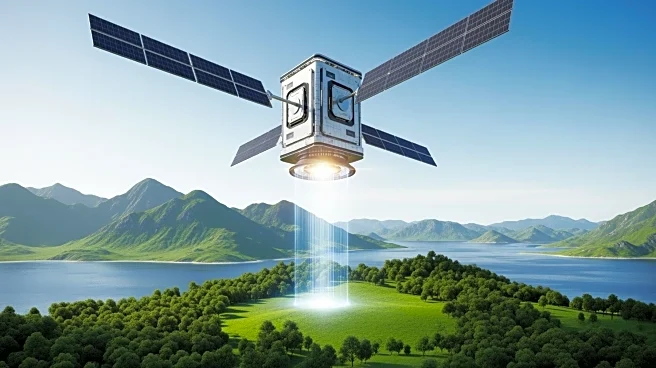What's Happening?
In Taiwan, the competition among telecom operators to partner with Amazon's Project Kuiper is intensifying. Chunghwa Telecom, Far EasTone, and Taiwan Mobile are vying to collaborate with the Amazon-owned low-Earth orbit (LEO) satellite firm, which is expected
to launch its services in the latter half of next year. Currently, Eutelsat OneWeb is the only new-generation satellite player with a presence in Taiwan, having secured a deal with Chunghwa Telecom two years ago and gaining commercial approval in June. The absence of Elon Musk's Starlink, due to regulatory and geopolitical issues, leaves the market open for Kuiper, Lynk, and OneWeb. Kuiper has already established a presence in Taiwan with 153 satellites in orbit, while OneWeb and Lynk are still expanding their satellite fleets.
Why It's Important?
The strategic partnerships with Project Kuiper could significantly impact Taiwan's telecommunications landscape, enhancing connectivity and potentially transforming service delivery, especially in remote areas. The absence of Starlink, due to its regulatory non-compliance and Musk's business ties with China, presents a unique opportunity for Kuiper and other players to capture market share. This development could influence Taiwan's digital infrastructure and its ability to maintain technological independence, especially given the geopolitical tensions in the region. The competition also highlights the importance of spectrum management, as Far EasTone's 28GHz spectrum aligns with Kuiper's frequencies, raising concerns about interference with existing 5G services.
What's Next?
As the competition unfolds, Taiwan's telecom operators will continue to negotiate and strategize for optimal partnerships with LEO satellite providers. The government may need to intervene to address spectrum interference issues and ensure fair competition. The outcome of these partnerships could set a precedent for future satellite communications in Taiwan and influence regional telecommunications policies. Stakeholders will be closely monitoring the developments, as the successful integration of LEO satellite services could enhance Taiwan's global connectivity and technological resilience.















